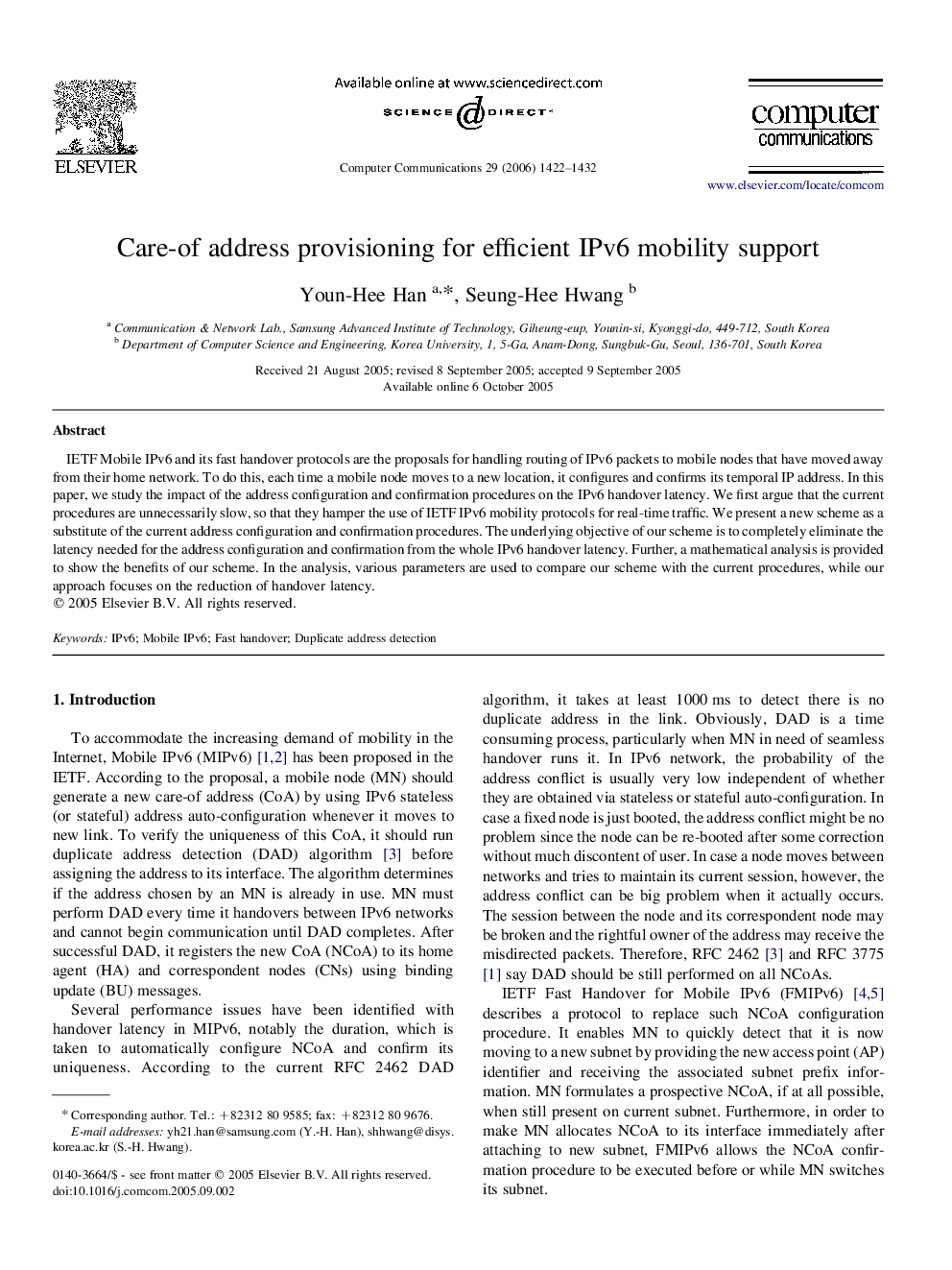| Article ID | Journal | Published Year | Pages | File Type |
|---|---|---|---|---|
| 449683 | Computer Communications | 2006 | 11 Pages |
IETF Mobile IPv6 and its fast handover protocols are the proposals for handling routing of IPv6 packets to mobile nodes that have moved away from their home network. To do this, each time a mobile node moves to a new location, it configures and confirms its temporal IP address. In this paper, we study the impact of the address configuration and confirmation procedures on the IPv6 handover latency. We first argue that the current procedures are unnecessarily slow, so that they hamper the use of IETF IPv6 mobility protocols for real-time traffic. We present a new scheme as a substitute of the current address configuration and confirmation procedures. The underlying objective of our scheme is to completely eliminate the latency needed for the address configuration and confirmation from the whole IPv6 handover latency. Further, a mathematical analysis is provided to show the benefits of our scheme. In the analysis, various parameters are used to compare our scheme with the current procedures, while our approach focuses on the reduction of handover latency.
